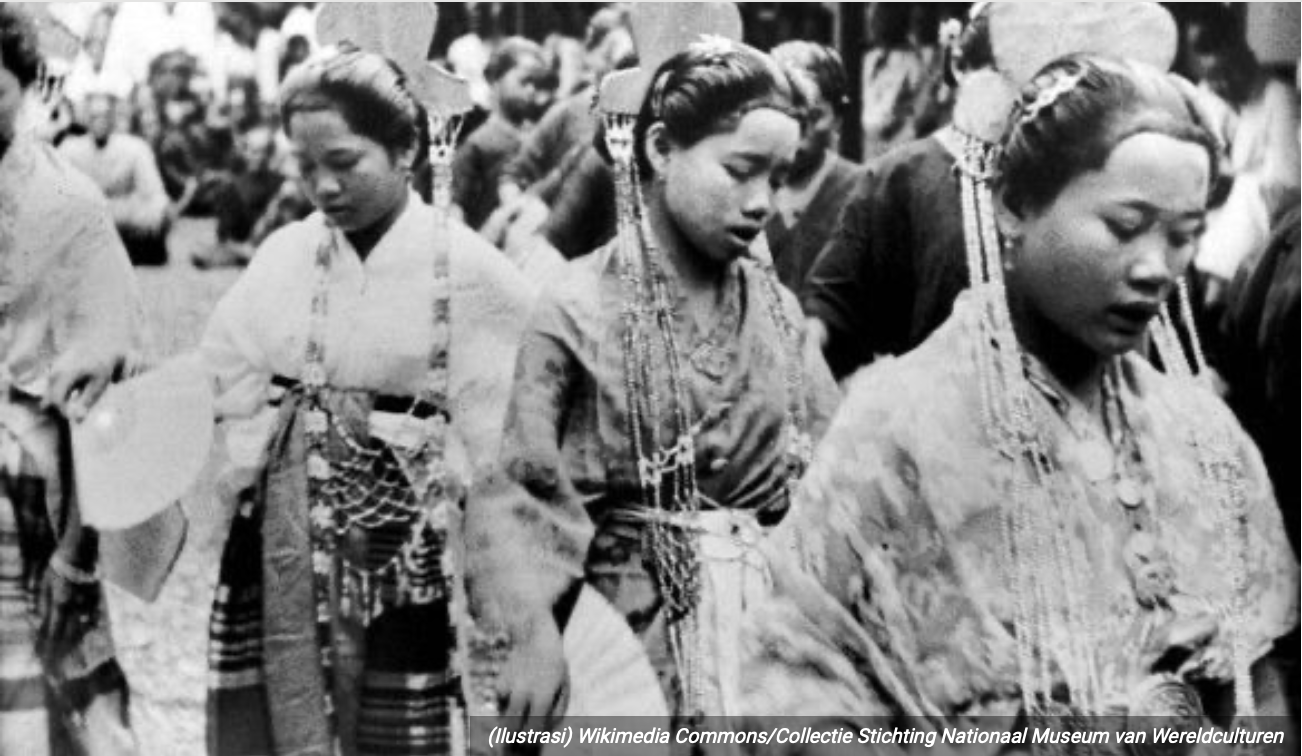Abstract
Globalization contribute to the socio-cultural construction and transformation of society. This study aims to analyze the construction and social transformation of silariang among Makassar people in South Sulawesi Province, Indonesia. The research uses a case study approach. Data were obtained through in-depth interviews, participant observation, and documentation studies. The results of the study show that siri’ (means dignity or shame or both at the same time) as the core value of Makassar people has a prominent relationship with silariang cases. Further, the globalization has changed the the world of view of the local community, particularly the younger generations, making them started to open minded. This change has lead them into a socio-cultural transformation. If in the past Makassar people extremely uphold the siri’ value exemplified by silariang, nowadays, people are more open to the alternative option called nikah siri or unregistered marriage. It also shows that the siri’ concept is fluid.
References
Abidin, A. Z. (1983). Persepsi Orang Bugis, Makassar tentang Hukum, Negara dan Dunia Luar. Bandung: Alumni.
Abidin, A. Z. (1999). Kapita Selecta Kebudayaan Sulawesi Selatan. Makassar: Hasanuddin University Press.
Al Isra, A. B. (2021). Feels Like Home: Understandi Indonesian Christians in Auckland. Master Thesis University of Auckland. Not Published.
Al Rodhan, N. R. F, and Stoudmann, G. (2006). Definition of Globalization. A Comprehensive Overview and a Proposed Definition. Geneva Centre for Security Policy. Not Published.
Azis, A, R, A. (2005). The State and Modernization Perspectives in Malaysia’s Development Planning. Jurnal Demokrasi, 4(2) 2005, p. 1-9. https://dx.doi.org/doi:10.21220/s2-1z70-0118
Brukman J. (1974). Stealing Women among the Koya of South India, Anthropological Quarterly 47(3) 1974, p. 304-313. https://doi.org/10.2307/3316982
Bungin, B. (2010). Metode Penelitian Kualitatif: Anaisis dan Pendekatan. Jakarta: Prenada Media.
Cresswell, John, W. (2013). Metode Penelitian Kuantitatif, Kualitatif, dan Mix. Yogyakarta: Pustaka Pelajar.
Daniel G. B, Conant, F and Kudat, A. (1974). Kidnapping and Elopement as Alternative Systems of Marriage (Special Issue). Anthropological Quarterly, 47, No. 3, Jul., 1974, p. 233-237. https://www.jstor.org/stable/i274727
Davies, S. G. (2007). Challenging Gender Norms: Five Genders among Bugis in Indonesia. Belmont: Thomson Wadsworth.
Giddens, A,. (2004). Teori Strukturasi Untuk Analisis. Sosial. Pasuruan: Pedati.
Graham, S. (2004). It’s Like One of Those Puzzles: Conceptualising Gender Among Bugis. In Journal of Gender Studies, vol.13, no.2, pp. 107-116
Halim, H, Wekke, I, W., Zainuddin, R,. Kamaruddin, S,. and Burchanuddin, A. (2018). “Become Entrepreneurs: The Social Impact of Wind Power Plant Industry Project.” IOP Conference Series: Earth and Environmental Science 175:012228
Hamsah, S. W. (2018). Dampak perubahan global terhadap nilai-nilai budaya lokal dan nasional (kasus pada masyarakat Bugis-Makasar). Jurnal Hermeneutika, vol. 4, no. 1, pp. 39-48.
Hasni, Dhahri, I., and Haris, H. (2019). Degradation of siri’ na pacce cultural values in THE Bugis-Makassar community. Proceedings of the International Conference on Social Science (ICSS). Atlantic Press.
Ibrahim, I, S. (2007). Budaya Populer Sebagai Komunikasi: Dinamika Popscape Dan Mediascape Di Indonesia Kontemporer. Yogyakarta: Jalasutra
Idrus, N. I. (2005). Siri’, Gender, and Sexuality among the Bugis in South Sulawesi. In Antropologi Indonesia, vol. 29, no. 1, pp. 38-55.
Idrus, N. I. (2016). Gender Relations in an Indonesian Society: Bugis Practices of Sexuality and Marriage. Leiden: KITLV.
Larasati, D. (2018). “Globalisasi Budaya Dan Identitas: Pengaruh Dan Eksistensi Hallyu (KoreanWave) versus Westernisasi Di Indonesia.” Jurnal Hubungan Internasional XI(1).
Mappiare, A.. (1983). Psikologi Orang Dewasa, Surabaya: Usaha Nasional.
Marginson, S. (2006). Notes on Globalization and Higher Education, With Some Reference to the Case of Australia. Monash Centre for Research in International Education, Monash University, and Centre for the Study of Higher Education, University of Melbourne.
Mattulada. (1980). Manusia dan Kebudayaan Bugis Makassar (The People and The Culture of Bugis Makassar). In Berita Antropologi, no. 38, pp. 1-90.
Mattulada. (1980). Sirik dan Pembinaan Kebudayaan (Sirik and Cultural Development). In Berita Antropologi, no. 38, pp. 108-116.
McLaren, A. E. (2001). Marriage by Abduction in Twentieth Century China, Modern Asian Studies, 35(4) 2001, p. 953-984. https://www.jstor.org/stable/313197
Miles, M., and Huberman, M., (2000). Analisis Data Kualitatif. Jakarta: Universitas Indonesia Press.
Moleong. (2005). Metode Penelitian Kualitatif edisi revisi. Bandung: PT. Remaja Rosdakarya.
Pieterse, J. N. (1994). “Globalisation As Hybridisation.” International Sociology 9(2):161–84.
Quijano, J, V, A. (1987). The Philippines in the Twentieth Century: Social Change in Recent The Philippines in the Twentieth Century: Social Change in Recent Decades. (1987). Dissertations, Theses, and Masters Projects. Paper 1539625429.
Rice, K. (2014) Ukuthwala in Rural South Africa: Abduction Marriage as a Site of Negotiation about Gender, Rights and Generational Authority Among the Xhosa, Journal of Southern African Studies, 40:2, 381-399, DOI: 10.1080/03057070.2014.896720
Robbayani, R, A, and Arfiah, S. (2018) Tradisi Kawin Culik Dan Kawin Lari Pada Suku Sasak Dusun Sade Desa Rembitan Kecamatan Pujut Kabupaten Lombok Tengah Provinsi Nusa Tenggara Barat. Thesis, Universitas Muhammadiyah Surakarta.
Russell, K, Ablezova, M & Aitieva, M. (2005). Kidnapping for marriage (ala kachuu) in a Kyrgyz village, Central Asian Survey, 24:2, 191-202, DOI: 10.1080/02634930500155138
Stever, H. G. (1972). Science, system, and society. Journal of Cybernetics, 2(3): 1-3.
Soegijoko, B,T,S. (2005). Bunga Rampai: Pembangunan Kota Indonesia Dalam Abad 21. Jakarta: Lembaga Penerbit FE-UI.
Spradley, J. P. 2006. Metode Etnografi (Ethnographic Methods). Yogyakarta: Tiara Wacana
Tika, Z. (2005). Silariang Dan Kisah-Kisah Siri. Makassar Pustaka Refleksi
Triandis, H. C. (1995). Individualism & collectivism. Westview Press.
Van Dijk, J. & Botros, G. (2009). The importance of ethnicity and religion in the life cycle of immigrant churches: a comparison of Coptic and Calvinist Churches. Canadian Ethnic Studies/Études ethniques au Canada, 41(1/2): 191-214.
Winland, D. N. (1994). Christianity and community: Conversion and adaptation among Hmong refugee women. The Canadian Journal of Sociology / Cahiers canadiens de sociologie, 19(1): 21-45.
Zhu, X, Y. & Chhachhar, A, R., (2017). Modernization of Confucianism: An Ethnographic Observation of Cultural Promoting Community. Mediterranean Journal of Social Sciences, 7(2) 2017, p. 137-146. DOI:10.5901/mjss.2017.v8n2p137.

This work is licensed under a Creative Commons Attribution-NonCommercial 4.0 International License.
Copyright (c) 2023 ETNOSIA : Jurnal Etnografi Indonesia





